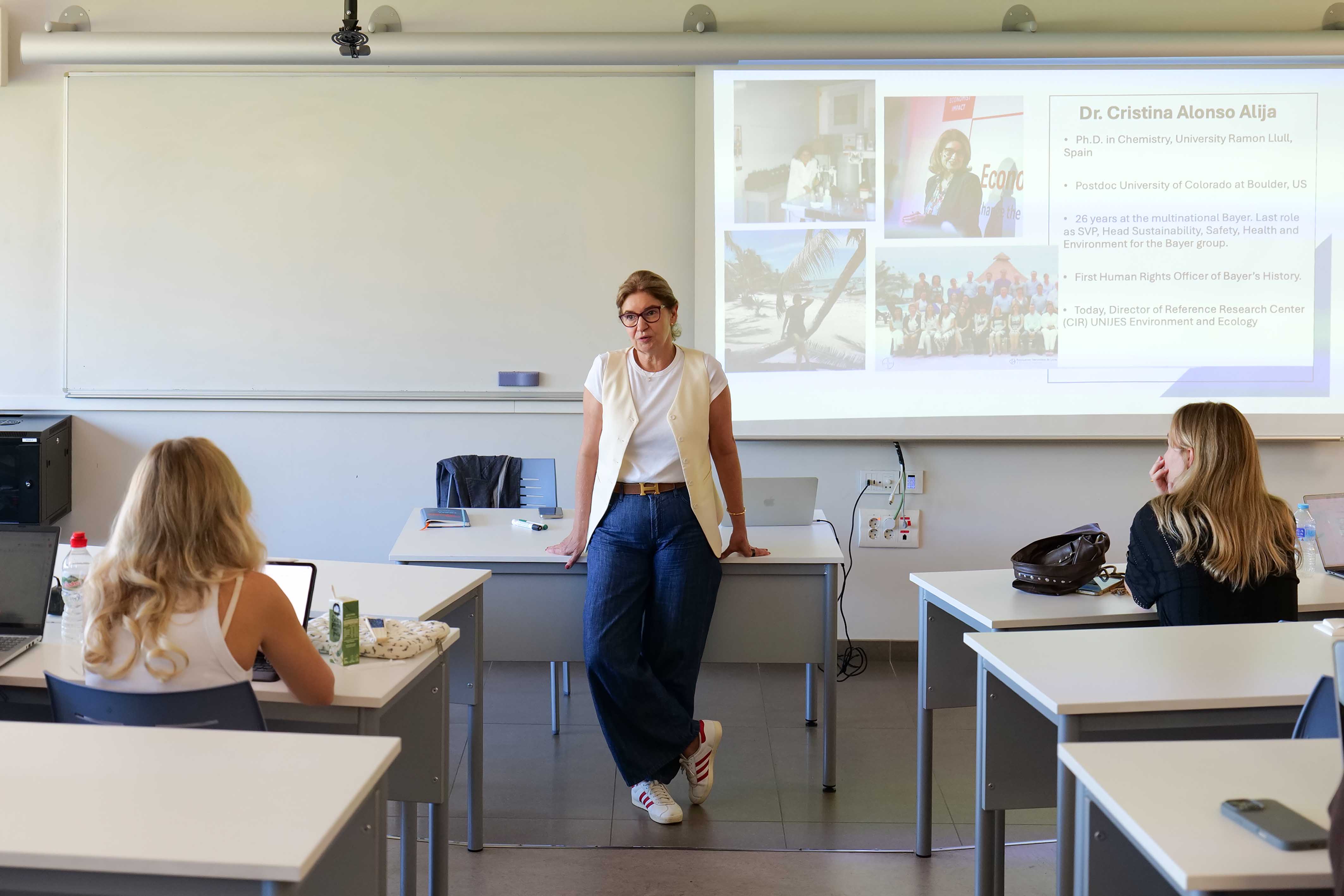To celebrate World Tourism Day, which is held on 27 September, students in the 3rd year of the Bachelor’s Degree in Tourism and Hospitality Management, students in the 4th year of the Bachelor’s Degree in Business Administration and Management, and students in the 4th year of the Bachelor’s Degree in Marketing who are studying the Tourism & Hospitality Trackparticipated in a lecture by Dr Cristina Alonso Alija, director of the UNIJES Reference Research Centre (CIR) in Environment and Ecology and Head of Sustainability at IQS.
IQS Celebrates World Tourism Day with a Lecture on Sustainability

Under the title “Tourism and Sustainability: Are we building or breaking?”, Dr Alonso shared her personal and professional experiences with students: she has lived in several countries, is proficient in five languages, and boasts an extensive international career. She was Senior Vice President at Bayer and the company’s first head of human rights before taking on the leadership role for Academic and Research Sustainability at IQS.
Dr Alonso’s presentation focused on the major challenges and dilemmas facing the tourism sector in terms of sustainability, especially in three key areas: climate change, natural capital, and human rights. She highlighted that tourism produces between 8 to 10% of global carbon emissions, but at the same time represents around 10% of the global economy. This duality makes it essential to educate professionals who are capable of managing risks and taking advantage of opportunities in a highly competitive context.
The students discussed the impacts of tourism on soil degradation, water use, biodiversity loss, and pollution, as well as the need to protect natural and cultural heritage as the foundation of the sector. Dr Alonso highlighted progress in reducing water consumption in the hotel industry and the importance of continuing to innovate to find sustainable solutions.
She also reflected on human rights in tourism, noting aspects such as working conditions, respect for local communities, and the right to land. Dr Alonso stressed that a well-designed tourism offering should not only avoid negative impacts, but also contribute to preserving and strengthening these fundamental rights.
The event concluded with a call to action: as future professionals in the sector, students were called upon to look for new forms of regenerative tourism, which leaves places that are visited better than how they were found. Dr Daniela Freund encouraged the students to consider projects that go beyond sustainability, committed to a regenerative tourism model that provides lasting environmental and social value.
“Tourism is an engine of opportunity: it creates jobs, strengthens bonds, and contributes to our mental well-being. However, we all must take on the responsibility of respecting the people and places we visit,” concluded Dr Alonso.









